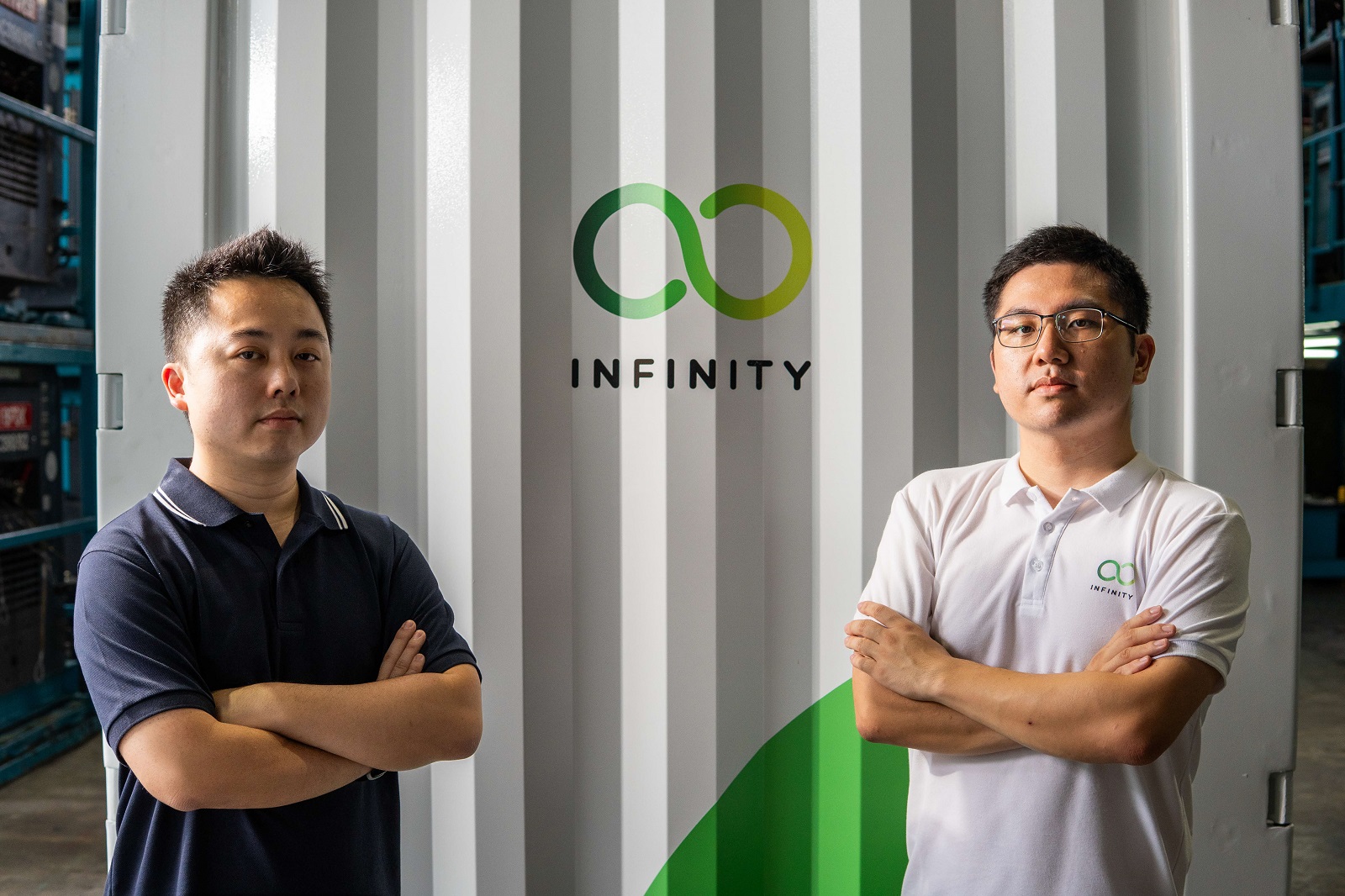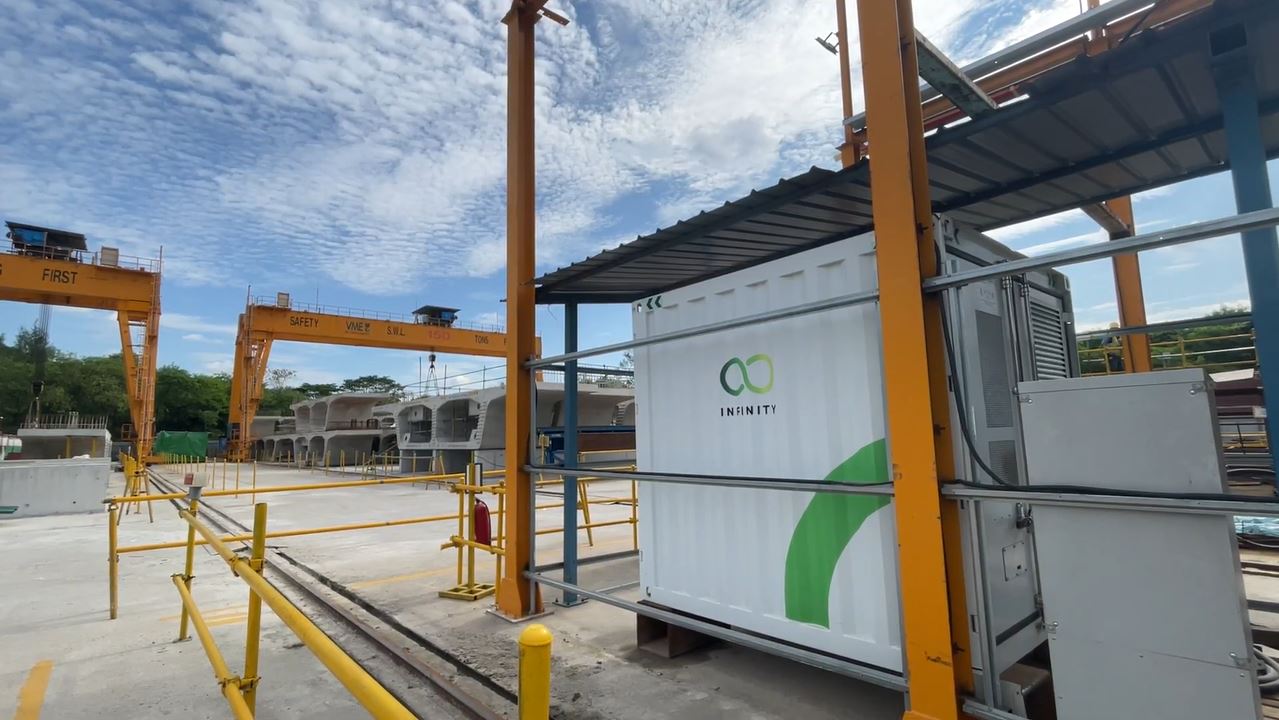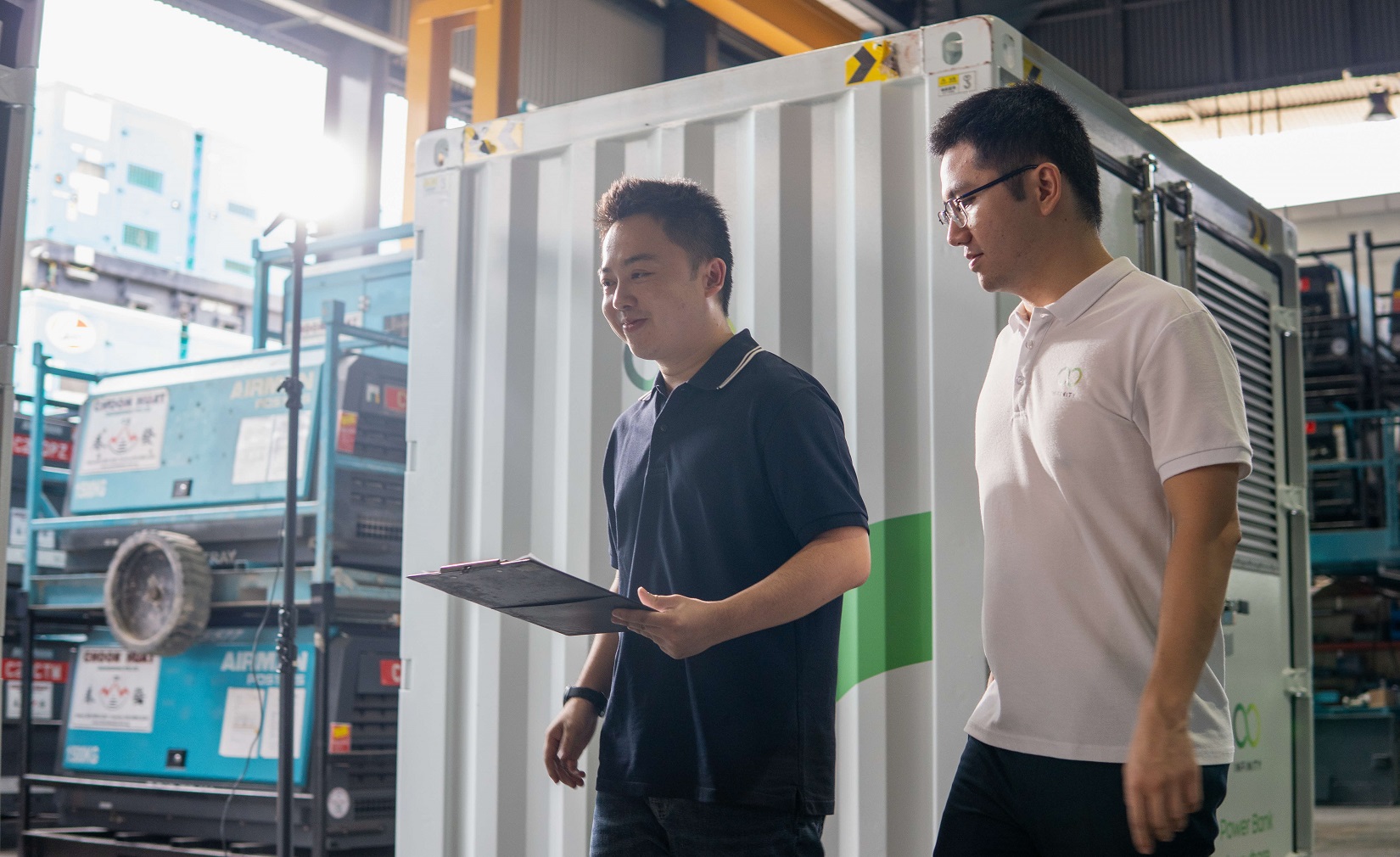When Oh Chee Yong took over the helm of Choon Huat Engineering, a company situated in Jurong Industrial Estate and known for supplying construction equipment in Singapore, he faced a challenge familiar to many Singapore SME owners: how to stay relevant in a sustainability-conscious market.
The answer came in 2021, when Chee Yong and his team discovered that battery energy storage systems (BESS) could power heavy equipment more efficiently than traditional diesel generators. They also saw BESS solutions as the potential replacement for diesel generators in the future. “As Choon Huat's business traditionally relies on leasing diesel generators, it was crucial for us to gain first-hand knowledge of this technology. We also saw an opportunity to strengthen our competitive advantage by incorporating it into our offerings,” he says.
It eventually led to the birth of Infinity Cube in 2023, a joint venture with a Chinese manufacturer specialising in BESS technology and production. Infinity Cube combines Choon Huat's leasing expertise with BESS technology, demonstrating how local SMEs can adapt to Singapore's sustainability push while uncovering new opportunities.
Launching Infinity Cube, however, presented several challenges for the team, particularly in building their technical expertise. “Our existing pool of engineers were sent for courses to pick up the necessary technical skills. When we hire new engineers as part of our expansion, we would consider their learning capabilities, as well as their attitudes and aptitudes towards new technology frontiers,” Chee Yong recalls. “We also set up a marketing team to support the intensive marketing efforts required for Infinity Cube.”
“Many construction companies are used to diesel generators as they're reliable and easy to use,” observes Oh Jun Rong, who heads Infinity Cube. “We spent a significant effort to educate potential customers about the benefits of switching to sustainable, energy-efficient solutions.”
The team focused on building strong relationships with key stakeholders in the construction, industrial, and energy sectors. Through targeted marketing, case studies, and real-world pilot projects, they were able to demonstrate the operational efficiency, cost savings, and environmental benefits of the BESS. “This helped us build trust and gain traction in the market. It's not an overnight change, but we hope to shift mindsets,” he adds.
Choon Huat's venture into sustainability through Infinity Cube has shown promising results. In the first year, Infinity Cube’s BESS units have been deployed at over 50 sites, saving each customer up to $300,000 and cutting 345,000kg of carbon emissions annually. Infinity Cube also intends to expand to overseas markets, while plans to invest some $8 million to produce more BESS units are also underway.
Choon Huat and Infinity Cube’s learning curves mirror the journeys Singapore SMEs are now beginning. As the nation intensifies its green efforts, businesses across sectors are exploring ways to be part of the sustainability conversation. “We were able to establish new competitive lanes instead of being stuck to the old ways of competition that may not be sustainable over the long-term,” Chee Yong says. “As an SME, I think it’s important to remain vigilant for opportunities, even when they appear as threats at first glance. A closer look often reveals potential for growth.”

What unique features does Infinity Cube's BESS offer compared to other solutions in the market?
Jun Rong: I think what sets Infinity Cube's BESS apart is its high-frequency usage capability, thanks to the Lithium Iron Phosphate batteries. Unlike typical BESS solutions, ours can handle the rapid charge and discharge rates needed for construction sites and industrial operations. The BESS’s power conversion system is also a bit of a Swiss Army knife — it manages these high-energy demands while also synchronises with various power sources like diesel generators, solar, and grid power.
We've also made our units compact and easy to move around, facilitating easy transportation and installation across different environments, including remote or off-grid locations. A remote cloud monitoring system, integrated with the energy management system, allows our clients to monitor their system's performance in real-time and benefit from carbon reporting features. This way, they can make informed decisions using data.

How do you see BESS contributing to the Built Environment’s sustainability goals, particularly in terms of energy efficiency and renewable energy integration?
Chee Yong: Our BESS typically achieves two to four times higher energy efficiency compared to traditional generators. This translates to more energy output per litre of diesel, depending on the setup and load demand.
Increasingly, you see more solar panels on the rooftops of factories. This is also relevant as JTC now requires new and renewed factory leases to have solar panels. The BESS can integrate with solar panels and inverters. While many factory owners currently prefer selling excess electricity back to the grid, Infinity Cube proves valuable for factories with limited grid capacity, allowing them to meet higher load demands.
Jun Rong: By storing excess energy from renewable sources such as solar and wind, the BESS ensures a continuous power supply, even when generation from these sources is low. This reduces reliance on fuels, cuts carbon emissions, and improves overall energy efficiency. In the construction industry, where high energy demand is common, BESS enables a significant reduction in diesel usage. This supports the transition to greener, more sustainable practices.

What role do you see Infinity Cube playing in Singapore's green energy transition over the next decade?
Lastly, do you have any advice for fellow companies who are looking to seize new opportunities in the green sector?
Jun Rong: The green technology space is incredibly exciting, and the potential for impact is vast. Focus on building a scalable business model, forming strategic partnerships, and positioning yourself as a thought leader in the space. We were lucky to work with forward-thinking companies in the construction, industrial, and energy sectors who shared our vision for a greener future. Their willingness to try new technologies and provide valuable feedback has been crucial in refining our products.
With persistence and a clear value proposition, startups can carve out a niche in the rapidly growing green sector and make a lasting difference for the planet. However, it requires us to be innovative, patient, and adaptive.